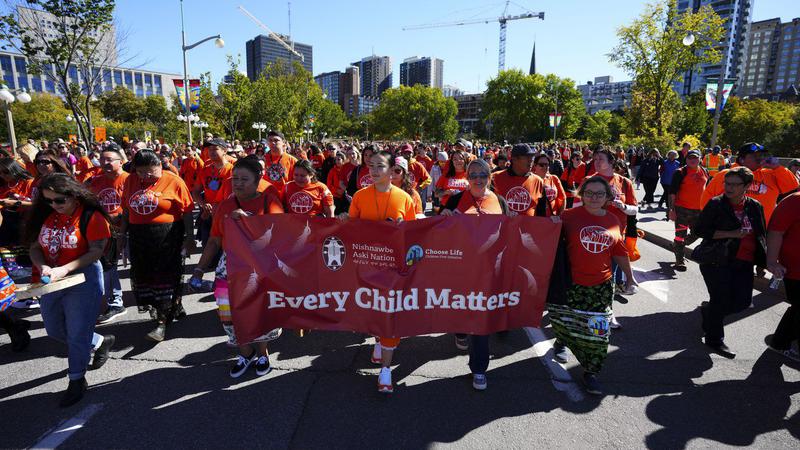
Provinces, territories face calls to make Day for Truth and Reconciliation a holiday
As Canada marks the second National Day for Truth and Reconciliation, provinces and territories face a push to recognize it as a statutory holiday.
New Brunswick, Prince Edward Island, the Northwest Territories and Nunavut have declared Sept. 30 a statutory holiday along with the federal government.
Murray Sinclair, the former head of Canada’s Truth and Reconciliation Commission, pointed out at a national event in Ottawa that many governments quickly moved to recognize the death of the queen, and he urged the same courtesy for residential school survivors.
“This is not a radical concept, to pause and to reflect. You do so for other days and occurrences throughout your life quite routinely,” he said, highlighting Remembrance Day on Nov. 11.


